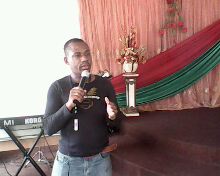 10 Things You Should Do BEFORE Your Child Begins Piano Lessons 10 Things You Should Do BEFORE Your Child Begins Piano Lessons
This is a quick checklist of things to do, buy, learn and decide before your child has their very first piano lesson.
Working your way through this checklist will speed up your child’s learning curve, possibly by months (maybe more!), and once you’ve covered every item below you will be a superbly equipped parent entering into the role of nurturing the growth of a new little (or not so little) pianist.
1. Buy a piano. This may or may not seem like a no-brainer to you. In case it’s not, let me explain. Your child will not make progress without a piano at home with which they can practice between lessons. So until you have a piano don’t bother organising to take piano lessons. Unless your goal is to pay for really expensive babysitting.
Ideally you will buy a good quality acoustic piano, but there might be reasons why you would prefer a digital piano (usually issues related to living in an apartment or a very small house). You want an acoustic piano because it does cool stuff that digital pianos can’t do – things like capturing harmonics when you silently depress the keys and then play other keys – and because the ‘touch’ your child will develop when practicing on an acoustic piano will be a better touch than when they practice on a digital piano.
But if a digital piano is the best option for you you’ll discover that a digital piano offers some wonderful extras that acoustic pianos don’t deliver (things like recording your performance and a variety of sound options – how many extras, and how wonderful they are, will depend on the quality of the digital piano you buy). The thing is you need weighted keys, touch sensitivity, a fixed pedal, a music stand that is not flimsy, and a sound that really does match the sound of a piano (as compared to electric keyboard).
2. Put the piano in a part of the house that isn’t a. lonely and/or b. where the only TV is. Two of the biggest reasons children don’t end up practicing is because they’re either lonely in the glummest/most distant room of the house or because everyone else wants to watch the television and the piano is in the same room. Having the piano hidden away communicates that the piano is not something normal or useful; having the piano and tv competing for acoustic space is just asking for conflict in your family.
3. If you have an acoustic piano, keep it tuned! This is more of an adminstrative burden than it is a major expense (you need to find a piano tuner, book them up, and then be at the house while they tune the piano), but if your piano is out of tune your child(ren) will find playing the piano far less pleasant, and you won’t enjoy hearing the piano played all that much either.
4. Encourage your child to play around with the piano prior to beginning lessons. You can’t break a piano by playing it, and your child will develop a sense of familiarity with the layout of the keys (black notes in groups of 2 and 3 placed between white notes) and the way the keys make sounds (high sounds towards the right, low sounds towards the left) as well as different effects the piano can make (softer sounds when you press more gently, sustained sounds when you depress the pedal, etc.). This saves time in the first weeks of lessons and, more importantly, means that your child will have a confidence when being asked to try ‘new’ things on the piano in these first few weeks and months.
5. Purchase a chair/piano stool/piano bench that is height adjustable. Sitting at the right height is a huge part of what makes playing the piano comfortable and effortless, and sitting at the wrong height can prevent the pianist from creating beautiful sounds. Don’t make do with cushions – organise a permanently available means for your child to sit with maximum ease at the piano.
6. Notice what your child discovers at the piano, and (when the time is right) talk about their discoveries with them. Does your child play the same thing (or variations of the same thing) every time they get near the piano? Or do they experiment with one kind of sound for a few days and then move on? Do they try to pick out tunes, or are they more interested in piano role-playing? Do they play across the full length of the keyboard, or restrict themselves to one area?
Noticing the way your child experiments is an essential foundation to being able to talk about what they are doing. And talking about what your child does is an essential part of validating and consolidating the discoveries they are making.
It doesn’t matter if you’re not sure of the exact musical term, talk about the kinds of feelings the sounds reflect, what the sounds remind you of, and ask your child to talk about their intentions, ideas and reflections. Some pianist gestures are gentle, others are cheeky, while yet others can be very sad indeed. Starting out your child’s pianistic journey by talking about emotion, attitude and texture (smooth/spiky, for instance) puts your child at an enormous advantage in communicating with others about their playing.
7. Make sure your child knows the difference between their right and left sides. This is a bigger issue than simply knowing the right hand from the left; having your child be aware that they can create an action on one side of their body and then mirror that action on the other develops physical-spatial awareness that will be immensely beneficial when learning new skills at the keyboard. Which is to say: having a child practice jumping to the left or jumping to the right will help them be better pianists. Anything that asks a child to do things with their body in terms of left and right will lay the foundation for physical fluency at the keyboard.
8. Make sure your child knows their alphabet. From A to G. And maybe back again. This won’t be covered in the first lesson (normally), but if your child understands that the musical alphabet goes A B C D E F G A B C D E F G A B, etc., they’ll save at least half a lesson. And if your child can think through those letters backwards you’ve probably saved two more whole lessons over the course of the first year.
9.Buy your child any piano training materials like books,vcds, etc
10. Let your child start a piano lesson with an experienced piano teacher |
Address
Brigade Bustop,Kasoa Accra
Accra, Central region, 00233
0248727936
What Adults Should Look For In
 A Good Piano Teacher – A Good Piano Teacher –
A good piano teacher will hold particular personality traits and use specific teaching methods. Not only will you need to find a piano teacher that is used to teaching adults how to play, but you will also need to find a piano teacher that is a good piano teacher. Not everyone is. Before you hire a piano teacher to help you learn how to play the piano you should create a list of piano teachers in your area by searching in your phone book, looking up listings online, and more. Once you have a list made up of potential piano teachers, you should contact each one to schedule an interview to see if the two of you would be compatible. Simply by contacting each one you can probably narrow down your list. If a teacher does not respond to your request within a reasonable amount of time - cross them off your list. If a teacher does not want to offer you an interview before hiring them - cross them off your list.
If a teacher wants to charge you for the initial interview – cross them off your list. There, now you may have started with a very long list, but you just narrowed it down pretty quickly by looking at some of the piano teachers' personality and work traits that would not help anyone. Now you can move on to the interview where you can ask them all of the questions you have about learning the piano, their teaching methods, if they have worked with adults, how they work, where they each, and any other questions or concerns you may have.
Here are some particular signs to look for when seeking your piano teacher –
- Motivation: They should have the ability to motivate you to want to learn how to play the piano, not bore you.
- Professional: You want someone who has great work ethics, but is also friendly and easy to talk to.
- Honesty: You need a piano teacher who is going to tell you when you are hitting the wrong keys, not just smile and nod. You may not be a musical person at all. A good teacher would tell you that in a professional manner if that is so./li>
- Communication: Just like any other relationship your piano teacher needs to be able to communicate with you effectively. If you do not understand what your teacher is saying it will be much more difficult to learn.
- Organizational: You need a piano teacher that can say "I would start you out with this lesson and move on through these lessons in my plan", not a teacher who would want you to figure out where you should begin.
But given all these qualities, the right piano teacher for you as an adult will also teach:
- Music theory & harmony: To understand music, you really need to master theory and harmony.
- Technique: Make sure the teacher includes a study of Hanon or some other technique book.
- Sight reading: Most teachers teach this alone, so make sure you have the other areas covered as well.
- Chords: Chords are a subset of harmony, but just make sure your teacher knows them and teaches them.
- Arranging and improvisation: Make sure you're not "chained to the written score" -- learn to arrange songs and improvise too.
If they don't cover ALL these areas, cross them off your list and start again. It's just too important. When you find the right teacher you will know, and you will feel confident that you can learn effectively with that person. Doing the research ahead of time will definitely pay off in the long run.
 Need Steve to be your guitar teacher? please click here Need Steve to be your guitar teacher? please click here
 Need a vocal coach? please click here Need a vocal coach? please click here
Please click here to read our policy
About Steve Chord
 PASTOR STEVE CHORD IS A MUSIC CONSULTANT FOR OVER 25 YEARS,H E IS THE DIRECTOR OF PIANO SCHOOL OF MUSIC formally STEVE MUSIC CONSULT INTERNATIONAL,AS A CONFERENCE SPEAKER AND A MOTIVATIONAL SPEAKER HE HAS TAUGHT AND SPOKEN IN MANY SEMINARS AND CONFERENCES IN NIGERIA AND GHANA PASTOR STEVE CHORD IS A MUSIC CONSULTANT FOR OVER 25 YEARS,H E IS THE DIRECTOR OF PIANO SCHOOL OF MUSIC formally STEVE MUSIC CONSULT INTERNATIONAL,AS A CONFERENCE SPEAKER AND A MOTIVATIONAL SPEAKER HE HAS TAUGHT AND SPOKEN IN MANY SEMINARS AND CONFERENCES IN NIGERIA AND GHANA
HE HAS HIS FIRST BACHELOR OF MUSIC FROM DIPLOMA SCHOOL OF MUSIC CANADA, DIPLOMA CERTIFICATE IN MUSIC TECHNOLOGY FROM THE POLYTECHNIC IBADAN IN NIGERIA AND LATER HAS OVER SIX DIFFERENT PROFESSIONAL CERTIFICATE IN PIANO AND VOICE FROM MUSIC SCHOOLS LIKE
MUSON SCHOOL OF MUSIC,
DIPLOMA SCHOOL OF MUSIC,EMMANUEL SCHOOL OF MUSIC. PRAISE MUSIC SCHOOL
HE ALSO HAS A DIPLOMA IN NETWORK MARKETING AND FINANCIAL BUSINESS MANAGEMENT
HE HAS HIS BACHELOR IN BIBLICAL STUDIES AND HE IS A GRADUATE OF WORD OF FAITH BIBLE INSTITUTE ACCRA GHANA(WOFBI).
HE IS A PROPHET AND HOLD A CERTIFICATE FROM INTERNATIONAL SCHOOL OF PROPHETS INC.,HE HAS CERTIFICATE IN PASTORAL CARE AND COUNSELING FROM WORLD COUNCIL FOR EVANGELICAL CLERGY.
HE IS A MEMBER OF WORLD COUNCIL FOR EVANGELICAL CLERGY.
HEADQUARTER IN SOUTH AFRICA
HE IS CURRENTLY A MEMBER OF BOARD AND DIRECTOR OF INSTITUTE OF CREATIVITY AN EDUCATIONAL ARM OF WIDOWS DEVELOPMENT FOUNDATION AND THE DIRECTOR OF SUCCESS PROFESSIONAL INSTITUTE,ALSO A MUSIC PASTOR AT FAITH ARMY CHAPEL INTERNATIONAL
HE ALSO SERVE AS A PARTNER TO SLEEK ENTERTAINMENT GHANA LTD.
HE HAS HELPED MANY REALIZED THEIR DREAMS AND POTENTIALS
CONTACT US |
 10 Things You Should Do BEFORE Your Child Begins Piano Lessons
10 Things You Should Do BEFORE Your Child Begins Piano Lessons A Good Piano Teacher –
A Good Piano Teacher – Need Steve to be your guitar teacher? please
Need Steve to be your guitar teacher? please  Need a vocal coach? please
Need a vocal coach? please  PASTOR STEVE CHORD IS A MUSIC CONSULTANT FOR OVER 25 YEARS,H E IS THE DIRECTOR OF PIANO SCHOOL OF MUSIC formally STEVE MUSIC CONSULT INTERNATIONAL,AS A CONFERENCE SPEAKER AND A MOTIVATIONAL SPEAKER HE HAS TAUGHT AND SPOKEN IN MANY SEMINARS AND CONFERENCES IN NIGERIA AND GHANA
PASTOR STEVE CHORD IS A MUSIC CONSULTANT FOR OVER 25 YEARS,H E IS THE DIRECTOR OF PIANO SCHOOL OF MUSIC formally STEVE MUSIC CONSULT INTERNATIONAL,AS A CONFERENCE SPEAKER AND A MOTIVATIONAL SPEAKER HE HAS TAUGHT AND SPOKEN IN MANY SEMINARS AND CONFERENCES IN NIGERIA AND GHANA